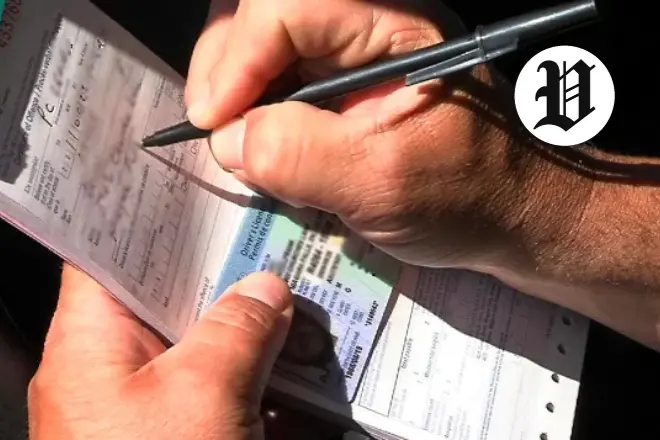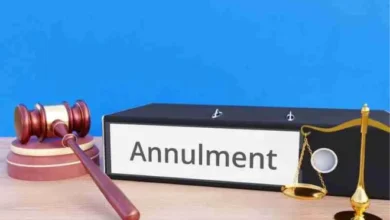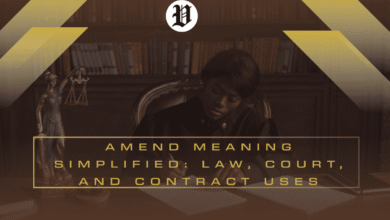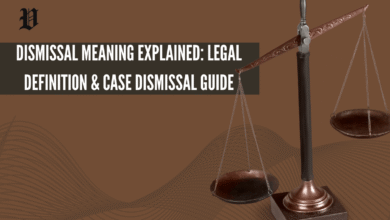Nevada Traffic Ticket: Civil Infraction or Misdemeanor?

Alright, let’s talk about something nobody enjoys: that flutter of anxiety when you see red and blue lights in your rearview mirror on a Nevada highway. You pull over, have that polite but nervous chat with the officer, and drive away with that little piece of paper that feels anything but little—your Nevada traffic citation.
I get it. I’ve been there myself, and after years of helping folks untangle these knots in and around Vegas traffic court, I know the confusion that sets in. Is this a civil infraction? Could this be a misdemeanor? What happens now?
Take a deep breath. Let’s walk through this together, in plain English. I’ll break down exactly what that ticket means, the real-world costs you might be facing, and—most importantly—what your smartest next moves are.
The Big Question: Is Your Ticket a Civil Slap or a Criminal Charge?
This is the most critical distinction. The type of traffic violation laws you’ve run afoul of determines everything—from the potential of jail time to the long-term hit on your insurance.
The Everyday Civil Infraction
Think of this as a financial penalty for a rules violation. It’s not a crime. The vast majority of tickets are civil violations. This category includes your standard Nevada speeding ticket, running a stop sign, or a non-moving violation like an expired registration.
And let’s clear this up right away: is a parking ticket a misdemeanor? No. A parking ticket is the most common type of civil infraction citation Nevada issues. You’re liable for a fine, but that’s typically it.
The bottom line? A civil infraction ticket means no jail time. The punishment is a fine and possibly points on your license. So, if you’re wondering are speeding tickets civil or criminal, the answer is almost always civil.
The Serious Criminal Traffic Violation
This is a whole different ballgame. These aren’t just violations; they’re criminal driving violations. You’re not just getting a ticket; you’re being charged with a crime.
This includes:
- DUI
- Reckless driving
- Driving on a suspended or revoked license
- Extreme speeding that gets labeled as reckless driving (sometimes called felony speeding in Nevada in the most severe cases)
If you’re holding a criminal Nevada traffic ticket, you’re facing a misdemeanor traffic citation. This means you could be looking at jail time, massive fines, probation, and a permanent criminal record. So, are traffic violations crimes? Only when they’re classified as criminal offenses like these.
At a Glance: Your Ticket Type Breakdown
| Type | Civil Infraction | Criminal Misdemeanor |
|---|---|---|
| Jail Time | No | Yes, it’s a real possibility |
| Criminal Record | No | Yes, this will follow you |
| Example Offenses | Speeding, Red Light, Expired Tags | DUI, Reckless Driving, Hit-and-Run |
The Real Cost: It’s So Much More Than the Fine
Everyone’s first question is, “how much is a speeding ticket in Nevada?” The truth is, the Nevada speeding ticket cost isn’t fixed. It depends on where you were and how fast you were going. The cost of speeding ticket in Las Vegas for 10 over is different than the speeding ticket Nevada cost for 20 over in Carson City.
But please, hear me on this: the fine is the cheapest part of this.
The Hidden Scourge: Demerit Points
Nevada uses a points system. Get enough points, and your license gets suspended.
- Speeding 1-10 mph over: 1 point
- Speeding 11-20 mph over: 2 points
- Speeding 21-30 mph over: 3 points
- Speeding 31-40 mph over: 4 points
This points system is why you might hear folks talk about strategies like “no school no points amend to parking – liable.” This is legalese for a beautiful outcome: your lawyer negotiates to have your moving violation (like speeding) amended down to a non-moving violation (something like a parking ticket). You’re still liable for a fine, but you get no points. Since a non moving violation doesn’t add points, it’s a major win.
The Silent Budget Killer: Your Insurance Premium
Let’s answer this directly: Do civil infractions affect insurance?
Absolutely, they do. Points on your record are a red flag to insurance companies. A single ticket can easily hike your annual premium by 20% or more. That means a $200 ticket could actually cost you over $1,000 when you spread those increased payments over three years.
People also see: Eviction Notices in Las Vegas and Nevada: A Complete Guide
Navigating the System: Your Options in Vegas Traffic Court
Your ticket will tell you which court to deal with, often the Las Vegas Justice Court. You have a few paths forward:
- Plead Guilty and Pay: The path of least resistance. You accept the fine and the points. You can usually do this online at lasvegasjusticecourt us traffic ticket.
- Plead Not Guilty and Fight It: You take it to trial and make the officer prove their case.
- Plead No Contest and Hire a Pro: This is where traffic lawyers Las Vegas earn their keep. These ticket fixers Las Vegas (a common local term) know the prosecutors and the system. They can often get your charge reduced to a minor traffic violation with no points. This is the key to how to get a criminal speeding ticket reduced to civil status.
The Scary What-Ifs: Warrants, Records, and Jail
Does a civil traffic violation go on your record?
Yes. A civil infraction goes on your driving record with the DMV. It is not on your criminal record. The same goes for asking does a civil citation go on record—yes, to your driving history.
How long before an unpaid ticket becomes a warrant?
If you ignore that ticket, the judge will issue a bench warrant for your arrest. Don’t wonder about the statute of limitations on traffic fines; the deadline is on your ticket. Ignoring it is the worst mistake you can make.
Can you go to jail for unpaid Nevada traffic tickets?
Yes. A bench warrant for failure to appear means you can be arrested. You could be stopped for a minor moving violation and end up in cuffs because of an old, unpaid ticket.
What’s the deal with points?
Points stay on your record for one year from the date of the violation. While people search for a dmv forgiveness program 2024, Nevada doesn’t have a point “amnesty” program. The only way to clear points is to drive clean for a year.
FAQs: Your Quick Questions Answered
Q1: I keep hearing different things. Is a speeding ticket a misdemeanor?
A: Usually, no. Most are civil infractions. But if you were flying at a dangerously high speed, it could be charged as a criminal offense speeding ticket like reckless driving.
Q2: What’s the real difference between an infraction and a misdemeanor?
A: An infraction is a fine. A misdemeanor is a crime that can mean jail time and a criminal record.
Q3: Is a lawyer really worth it for a simple ticket?
A: For a civil infraction ticket, it’s not required, but it’s often the smartest financial decision. They can often get it reduced to a non-moving violation, saving you from points and an insurance hike that would cost more than their fee.
Q4: What if I just ignore the ticket and hope it goes away?
A: Please don’t. The court won’t forget. They’ll issue a warrant (how long before an unpaid ticket becomes a warrant? Not long after your court date), suspend your license, and add fees. You absolutely can go to jail for not paying a ticket once a warrant is out.
Q5: How long will this haunt my driving record?
A: The conviction itself stays for years for insurance to see, but the demerit points only count against you for one year.
The Bottom Line: Don’t Panic, Just Be Smart
Getting a ticket is a pain, but it’s a manageable one. Your first job is to understand what you’re holding. Is it a simple civil infraction or a serious misdemeanor traffic violation?
Your best bet is almost never to just blindly pay the fine. At the very least, call a local attorney for a consultation. Spending a little now could save you a fortune in hidden costs later.
Handle it promptly, know your options, and you’ll get through it. Now, go drive safely out there





2 Comments